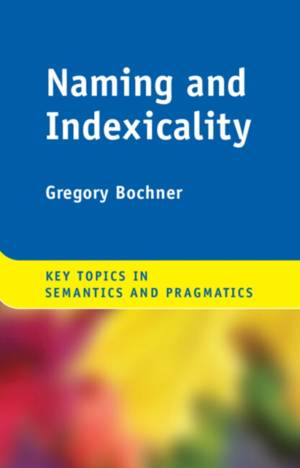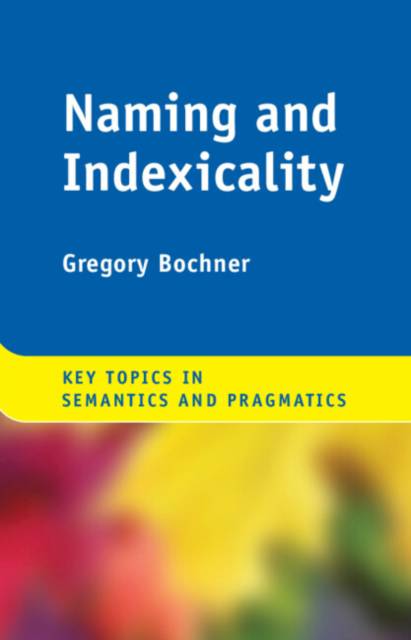
- Afhalen na 1 uur in een winkel met voorraad
- Gratis thuislevering in België vanaf € 30
- Ruim aanbod met 7 miljoen producten
- Afhalen na 1 uur in een winkel met voorraad
- Gratis thuislevering in België vanaf € 30
- Ruim aanbod met 7 miljoen producten
Zoeken
€ 187,45
+ 374 punten
Omschrijving
How do words stand for things? Taking ideas from philosophical semantics and pragmatics, this book offers a unique, detailed, and critical survey of central debates concerning linguistic reference in the twentieth century. It then uses the survey to identify and argue for a novel version of current 'two-dimensional' theories of meaning, which generalise the context-dependency of indexical expressions. The survey highlights the history of tensions between semantic and epistemic constraints on plausible theories of word meaning, from analytic philosophy and modern truth-conditional semantics, to the Referentialist and Externalist revolutions in theories of meaning, to the more recent reconciliatory ambition of two-dimensionalists. It clearly introduces technical semantical notions, theses, and arguments, with easy-to-follow, step-by-step guides. Wide-ranging in its scope, yet offering an accessible route into literature that can seem complex and technical, this will be essential reading for advanced students, and academic researchers in semantics, pragmatics, and philosophy of language.
Specificaties
Betrokkenen
- Auteur(s):
- Uitgeverij:
Inhoud
- Aantal bladzijden:
- 250
- Taal:
- Engels
- Reeks:
Eigenschappen
- Productcode (EAN):
- 9781108428453
- Verschijningsdatum:
- 9/12/2021
- Uitvoering:
- Hardcover
- Formaat:
- Genaaid
- Afmetingen:
- 140 mm x 216 mm
- Gewicht:
- 489 g

Alleen bij Standaard Boekhandel
+ 374 punten op je klantenkaart van Standaard Boekhandel
Beoordelingen
We publiceren alleen reviews die voldoen aan de voorwaarden voor reviews. Bekijk onze voorwaarden voor reviews.











